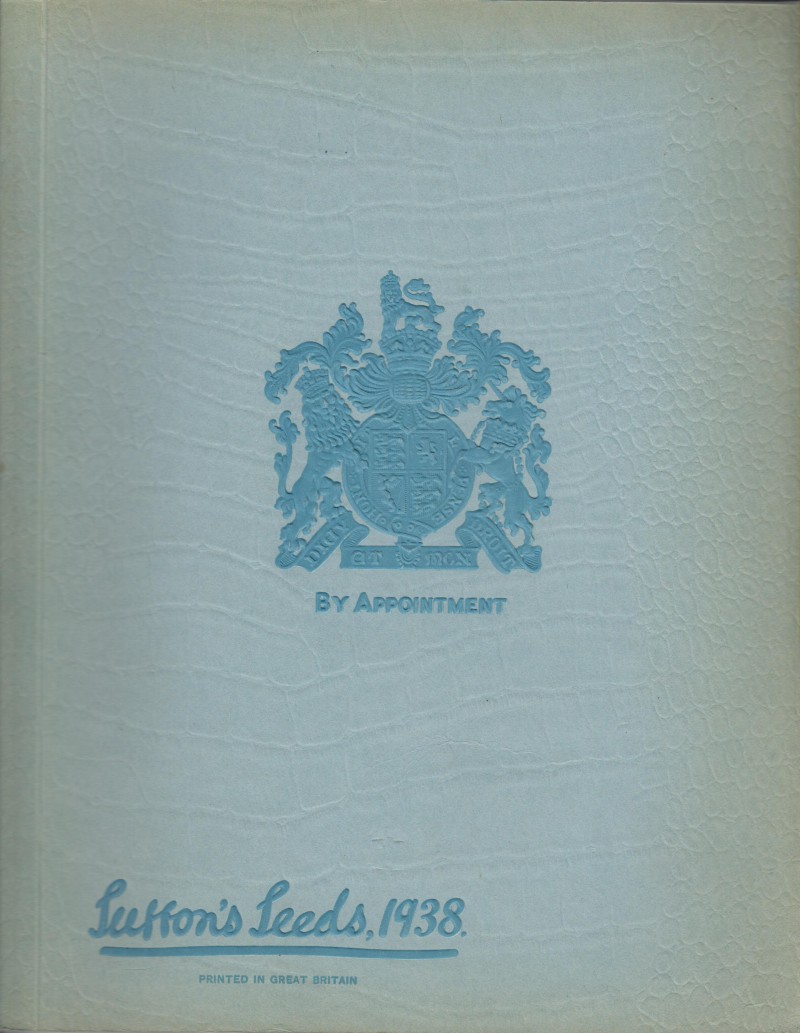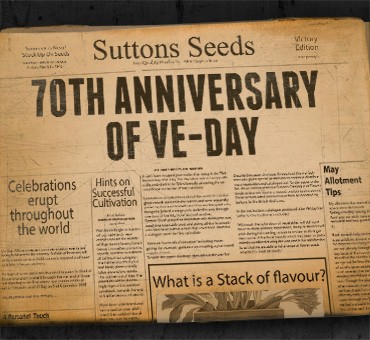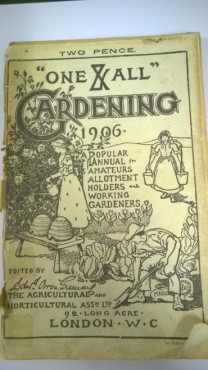When people are passionate about something they tend to enjoy sharing that passion with like-minded people and we are lucky enough to have a great many customers who fit with that description.
We regularly receive photos showing our customers’ achievements and these clearly prove that there is a huge amount of expert knowledge out there with gardens across the country bursting with beautiful blooms and incredibly productive vegetable patches and greenhouses.
We also hear from those new to gardening seeking advice and guidance and from those who have moved to a new area and want some input into how to manage the change in soil type, position, temperature, etc.
One group of customers who we especially enjoy hearing from are those with some history to share. Having been around since 1806 Suttons Seeds has touched a lot of people and it is not uncommon for our customers to contact us with old documents and photos that they have found relating to a past shared between their family members and Suttons.
One such customer, Sir Charles Huxtable, contacted us last month to share a Suttons letter that he had found sent from The Royal Seed Establishment (aka Suttons Seeds) to his mother.
During the spring and summer of 1938 Sir Charles’ father had dug/built an air raid shelter in the garden. Mrs Huxtable then contacted The Royal Seed Establishment to enquire as to which shrubs would be best suited to being grown on the mound over the shelter. The suggestions made include some shrubs which remain very popular today, and are still sold by Suttons, together with some which are perhaps not quite so familiar. Certainly the prices have changed somewhat!
Berberis Aggregata – deciduous; long whip-like branches; masses of coral-prink berries; brilliant autumn tints ……. 1/6 to 2/6 each
Berberis Thunbergii – deciduous; free in flower and berry; brilliant autumn tints …….2/- each
Berberis Wilsonae – deciduous; coral-red berries ……. 2/- each
Calluna Vulgaris – the common Scotch heather ……. 8d each
Cytisus Praecox – a free-flowering Broom; masses of flowers with butter- yellow keels and cream wings; attractive grey-green foliage ……. 2/6 each
Genista Hispanica – deciduous; bright yellow flowers in May …… 1/9 each
Hypericum Patulum Henryi – deciduous; clusters of yellow bowl-shaped flowers from June to August ……. 1/6 each
Kerria Japonica – deciduous; golden-yellow open flowers from April to June ……. 1/6 each
Philadelphus Microphyllus – deciduous; dainty dwarf species of Mock Orange with fine twigs and small sweet white flowers in June ……. 1/6 each
Olearia Haastii – evergreen; small greyish oval leaves; masses of white Daisy-like flowers in July ……. 2/6 each
Rosmarinus Officinalis – the well-known Rosemary ……. 1/- each
Senecio Greyii – evergreen; grey foliaged shrub; large oval leaves ……. 2/- each
Spiraea Japonica “Anthony Waterer” – deciduous; corymbs of deep carmine flowers from to August …… 1/6 to 2/6 each
Weigela Hybrida “Eva Rathke” – deciduous; rich crimson flowers in summer ……. 1/6 each
With such a wonderful collection of shrubs the air raid shelter must have been well hidden and an area of great colour and beauty.
I appreciate that not many current customers will have an air raid shelter in the garden but maybe you have a mound or bank which could do with some planting? The shrubs listed above will work equally well today.
A big thank you to Sir Charles for sharing his mother’s letter. The house has since been sold but the last time visited the shelter was still there and being used as an apple store with the covering plants still looking good.
If you have something of interest to share then please do get in touch. We’d love to hear from you.
Last Updated on July 19, 2024 by Suttons Horticultural Team





